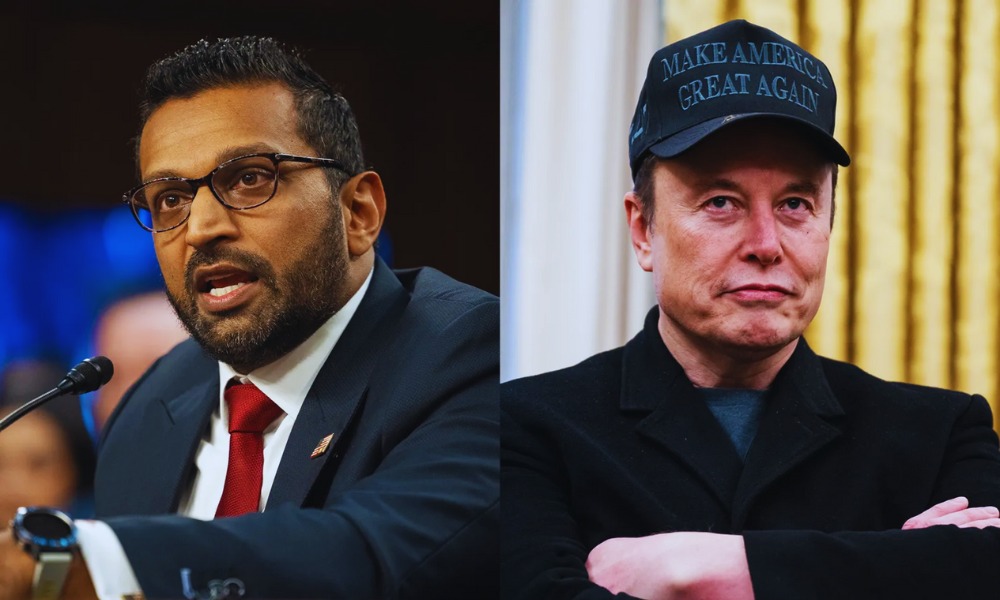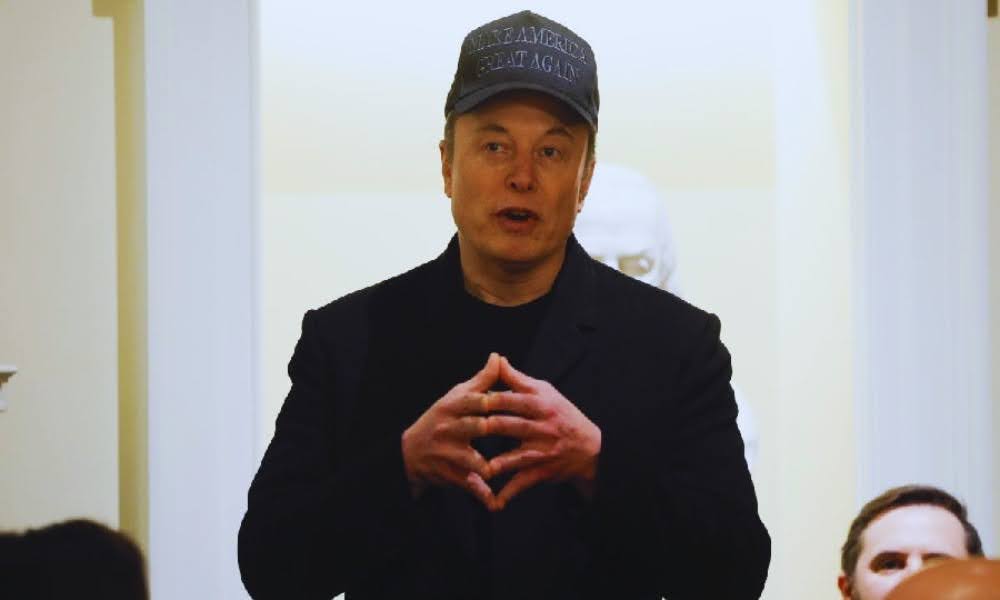Loyalty and Power: Kash Patel, Elon Musk, and the FBI’s Future Under Trump

Kash Patel is on track to be the next director of the FBI, with Senate Republicans pushing for his confirmation.
A staunch ally of former President Donald Trump, Patel is widely viewed as unqualified for the role, given his history as a promoter of conspiracy theories, including QAnon, and his denial of the 2020 election results.
While Patel is expected to aggressively target Trump’s political opponents, his strained relationship with influential tech mogul Elon Musk may present challenges.
Patel’s Past Criticism of Musk
During the Biden administration, Patel frequently voiced skepticism about Musk and his growing control over multiple industries.
A former intelligence and Defense Department official under Trump, Patel was once considered for high-level positions at the FBI and CIA, but Cabinet members advised against his appointment.
Instead, Patel turned to the media, where he hosted a podcast called Kash’s Corner on EpochTV, part of the far-right Epoch Media Group.
Throughout his media appearances, Patel accused Musk of monopolistic behavior, mass data collection, and excessive reliance on federal contracts.
In December 2021, Patel criticized Musk on Fox News, claiming that the billionaire’s SpaceX subsidiary, Starlink, was unfairly funded by taxpayers.
“He is literally launching this thing called satlink, which almost no one knows about, but he’s been building for five years, which is free Wi-Fi for the world,” Patel said, referring to Starlink. “I mean, we’re all paying for it, this is why he’s so rich.”
He went on to label Musk the “biggest” contractor for the Department of Defense. While Musk is not the largest Pentagon contractor, SpaceX has secured around $22 billion in government contracts.
Patel even acknowledged that his statements might cost him any potential employment with Musk, saying, “I’ll never get hired from him now.”
Concerns Over Musk’s Data Control
Patel’s concerns extended beyond Musk’s financial ties to the government. He expressed alarm over Musk’s $44 billion acquisition of Twitter (now X), warning that it granted him unchecked control over Americans’ private data.
In an episode of Kash’s Corner in 2022, Patel raised concerns about Musk’s influence: “He’s already got Tesla, he’s already got the SpaceX program and the government DOD contracts, which I believe to be the largest portion of his income. And now he’ll have Twitter. So what scares me is, you want to talk about a monopoly, he is the ultimate monopoly.”
Patel also speculated—without evidence—that Musk might share user data with the Chinese Communist Party, drawing parallels to controversies surrounding TikTok.
“What do you do with everyone’s personal information?” Patel asked. “Do you allow the [Chinese Communist Party] to have backdoors like other companies, like TikTok, have done in the past, and sell Americans’ data or provide Americans’ data directly to the CCP for future use against Americans and American interest?”
Musk’s Role in the Trump Administration and the Deep State Narrative
Despite this contentious history, Musk recently endorsed Patel for the FBI director position.
Earlier this month, he shared an X post supporting Patel’s nomination, writing: “Confirm Kash now.” This endorsement came as Patel prepared to overhaul the FBI, potentially leading to mass firings of agents deemed insufficiently loyal to Trump.
Patel has previously suggested that the January 6 attack on the Capitol was orchestrated by federal agents, aligning with Musk’s claims that pro-Trump rioters were largely peaceful.
Musk’s Department of Government Efficiency (DOGE) has played a significant role in cutting federal jobs, intensifying concerns over conflicts of interest, given his vast government contracts.
While Musk and Trump have dismissed transparency concerns, scrutiny over Musk’s influence has continued to grow.
Patel’s History of Conspiracy Theories and Senate Concerns
Patel has repeatedly pushed unfounded conspiracy theories, particularly regarding the “Twitter Files,” a series of internal Twitter documents released by Musk in an attempt to expose alleged government censorship.
Patel criticized the release as a selective leak, accusing Musk of running a “disinformation” operation.
“This partial release of documents is almost a version of censorship itself,” Patel declared at the Turning Point USA America Fest convention in December 2022.
On Steve Bannon’s War Room podcast, he further accused Musk of covering up FBI involvement in “rigging” the 2020 election.
Lawmakers have raised concerns about Patel’s extremist views. During a Senate confirmation hearing, Senator Dick Durbin questioned Patel about his association with Stew Peters, a far-right podcaster known for spreading conspiracy theories and collaborating with neo-Nazis.
Patel denied any familiarity with Peters, despite having made multiple appearances on his show.
The Path Forward
Patel’s nomination has sparked significant controversy, with many fearing he will reshape the FBI to serve Trump’s political interests. He has vowed to target journalists and government officials he believes “lied about American citizens” and “helped Joe Biden rig presidential elections.”
In a 2022 War Room interview, he stated, “We’re going to come after you, whether it’s criminal or civilly, we’ll figure that out.”
His potential leadership of the FBI represents a broader shift in the Trump administration’s second term, with a focus on eliminating perceived disloyalty within government agencies.
While Patel and Musk may have had public disagreements, their shared interests in dismantling the so-called “deep state” suggest that their alliance may strengthen over time.
With Patel’s confirmation vote looming, his appointment could mark the beginning of a radical transformation in federal law enforcement, with unpredictable consequences for both political adversaries and longstanding government structures.








